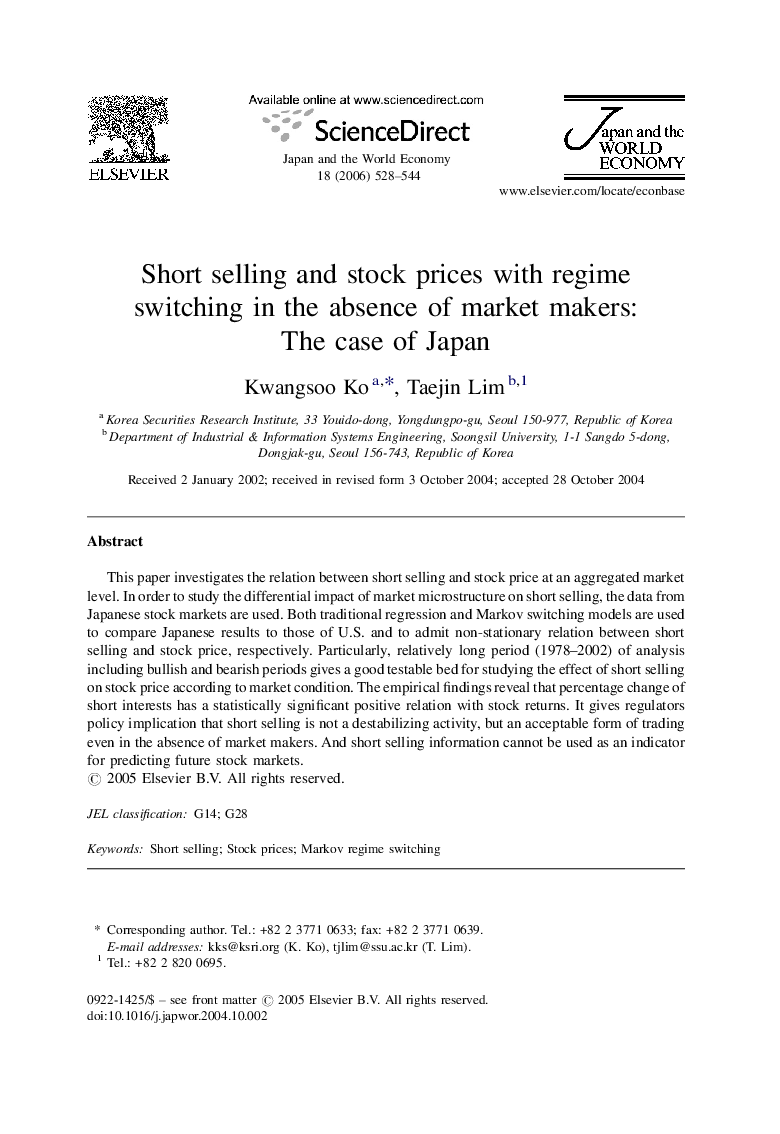| Article ID | Journal | Published Year | Pages | File Type |
|---|---|---|---|---|
| 5086419 | Japan and the World Economy | 2006 | 17 Pages |
Abstract
This paper investigates the relation between short selling and stock price at an aggregated market level. In order to study the differential impact of market microstructure on short selling, the data from Japanese stock markets are used. Both traditional regression and Markov switching models are used to compare Japanese results to those of U.S. and to admit non-stationary relation between short selling and stock price, respectively. Particularly, relatively long period (1978-2002) of analysis including bullish and bearish periods gives a good testable bed for studying the effect of short selling on stock price according to market condition. The empirical findings reveal that percentage change of short interests has a statistically significant positive relation with stock returns. It gives regulators policy implication that short selling is not a destabilizing activity, but an acceptable form of trading even in the absence of market makers. And short selling information cannot be used as an indicator for predicting future stock markets.
Related Topics
Social Sciences and Humanities
Economics, Econometrics and Finance
Economics and Econometrics
Authors
Kwangsoo Ko, Taejin Lim,
